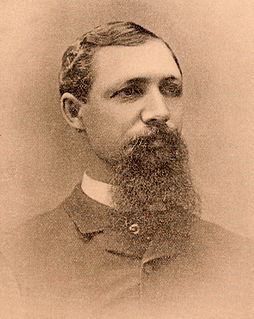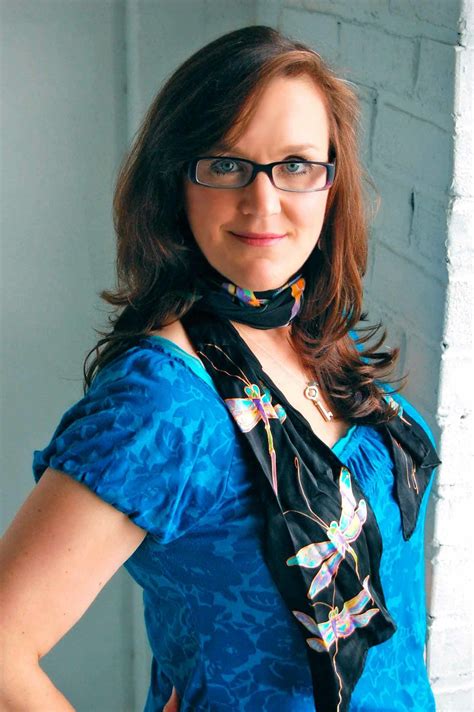A Quote by Albert Pike
Magic is that which it is; it is by itself, like the mathematics; for it is the exact and absolute science of Nature and its laws . Magic is the science of the Ancient Magi: and the Christian religion, which has imposed silence on the lying oracles, and put an end to the prestiges of the false Gods , itself reveres those Magi who came from the East, guided by a Star , to adore the Saviour of the world in His cradle.
Related Quotes
It is significant comment on the victory of science over magic that were someone to say ‘if I put this pill in your beer it will explode,’ we might believe them; but were they to cry ‘if I pronounce this spell over your beer it will go flat,’ we should remain incredulous and Paracelsus, the Alchemists, Aleister Crowley and all the Magi have lived in vain. Yet when I read science I turn magical; when I study magic, scientific.
The exercise of magical power is the exercise of natural powers, but superior to the ordinary functions of Nature. A miracle is not a violation of the laws of Nature, except for ignorant people. Magic is but a science, a profound knowledge of the Occult forces in Nature, and of the laws governing the visible or the invisible world. Spiritualism in the hands of an adept becomes Magic, for he is learned in the art of blending together the laws of the Universe, without breaking any of them and thereby violating Nature.
Mathematics has two faces: it is the rigorous science of Euclid, but it is also something else. Mathematics presented in the Euclidean way appears as a systematic, deductive science; but mathematics in the making appears as an experimental, inductive science. Both aspects are as old as the science of mathematics itself.
The end of the eighteenth and the commencement of the nineteenth century are remarkable for the small amount of scientific movement going on in this country, especially in its more exact departments. Mathematics were at the last gasp, and astronomy nearly so; I mean in those members of its frame which depend upon precise measurement and systematic calculation. The chilling torpor of routine had begun to spread itself over all those branches of Science which wanted the excitement of experimental research.
The assumption that the laws of nature are eternal is a vestige of the Christian belief system that informed the early postulates of modern science in the seventeenth century. Perhaps the laws of nature have actually evolved along with nature itself, and perhaps they are still evolving. Or perhaps they are not laws at all, but more like habits.
This is the awe-inspiring universe of magic: There are no atoms, only waves and motions all around. Here, you discard all belief in barriers to understanding. You put aside understanding itself. This universe cannot be seen, cannot be heard, cannot be detected in any way by fixed perceptions. It is the ultimate void where no preordained screens occur upon which forms may be projected. You have only one awareness here—the screen of the magi: Imagination! Here, you learn what it is to be human. You are a creator of order, of beautiful shapes and systems, an organizer of chaos.
Which direction do we take? The one prompted by the passions or the one indicated by the star which shines in your conscience? The Magi heard the answer: "In Bethlehem of Judea; for so it is written by the prophet" (Mt 2: 5), and, enlightened by these words, they chose to press forward to the very end.
If you ask ... the man in the street ... the human significance of mathematics, the answer of the world will be, that mathematics has given mankind a metrical and computatory art essential to the effective conduct of daily life, that mathematics admits of countless applications in engineering and the natural sciences, and finally that mathematics is a most excellent instrumentality for giving mental discipline... [A mathematician will add] that mathematics is the exact science, the science of exact thought or of rigorous thinking.
Science spotlights three dimensions of nature that point to God. The first is the fact that nature obeys laws. The second is the dimension of life, of intelligently organized and purpose-driven beings, which arose from matter. The third is the very existence of nature. But it is not science alone that has guided me. I have also been helped by a renewed study of the classical philosophical arguments.
The remarkable insights that science affords us into the intelligible workings of the world cry out for an explanation more profound than that which itself can provide. Religion, if it is to take seriously its claim that the world is the creation of god, must be humble enough to learn from science what that world is actually like. The dialogue between them can only be mutually enriching.




































